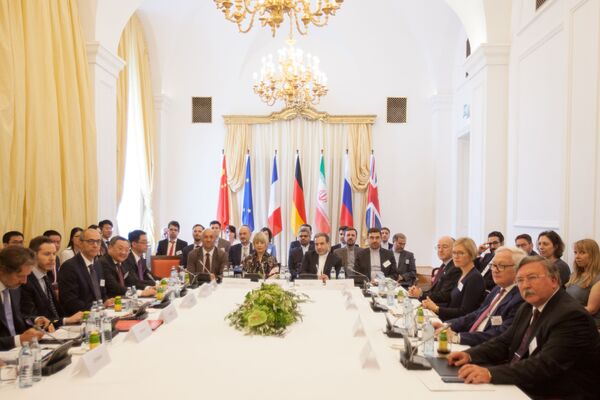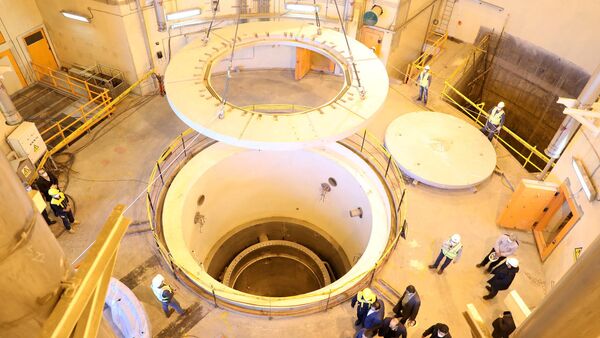Iran will have to revise its participation in the Nuclear Non-Proliferation Treaty (NPT) if the West proceeds with its pressure on the country, Iran's ambassador to Russia, Kazem Jalali, said during a press conference at the Rossiya Segodnya international news agency on Monday.
"As you know, the parliament of Iran has recently been involved in discussing the issue of leaving the NPT. That is why, of course, if Iranians, the Iranian Parliament, and government see that…the pressure continues, they will have to make other decisions", Jalali said.
However, the ambassador added that Tehran remains committed to the NPT and also has no plans to quit the JCPOA.
"As far as the JCPOA is concerned, Iran is a participant in this deal and has certain commitments under this deal… These five steps which we have made – we have always said that they are reversible…As of today, we have no intention of quitting the JCPOA", Jalali said.
Last month, the Iranian Parliament introduced a motion for the country to quit the NPT following an announcement by the country's Foreign Minister Mohammad Javad Zarif that Iran would leave the treaty if its nuclear issue was referred to the United Nations Security Council.
Mr Zarif's remarks came as a response to a decision earlier made by Germany, France and the UK to launch the Dispute Resolution Mechanism within the Joint Comprehensive Plan of Action (JCPOA).
The development followed Iran's announcement that it was rolling back its obligations under the JCPOA amid a renewed escalation of tensions with the US over the killing of Iran's top military commander Qasem Soleimani in early January.

The JCPOA is an agreement on Iran's nuclear programme reached in 2015 by Iran and the five permanent members of the UNSC: China, Russia, France, the United Kingdom, the United States plus Germany. The deal provided that Iran would limit its nuclear activities in exchange for reduced economic sanctions.
In May 2018, US President Donald Trump announced that Washington was withdrawing from the JCPOA, calling it "a horrible one-sided deal" that "didn't bring peace, and it never will". In a move that was criticised by the other signatories to the deal, POTUS also reinstated all sanctions against Tehran with an eye to bringing its oil exports down "to zero".
On the one-year anniversary of the US pullout, the Islamic Republic announced that it would suspend some of its voluntary commitments under the nuclear accord and would resume enriching uranium at a higher level within 60 days unless the five remaining signatories - Russia, China, the UK, France, and Germany - ensured that Tehran's interests were protected.
Once the deadline expired, Iran said it would begin enriching uranium beyond the 3.67 level set by the agreement and gradually scale back on its nuclear obligations every 60 days.




